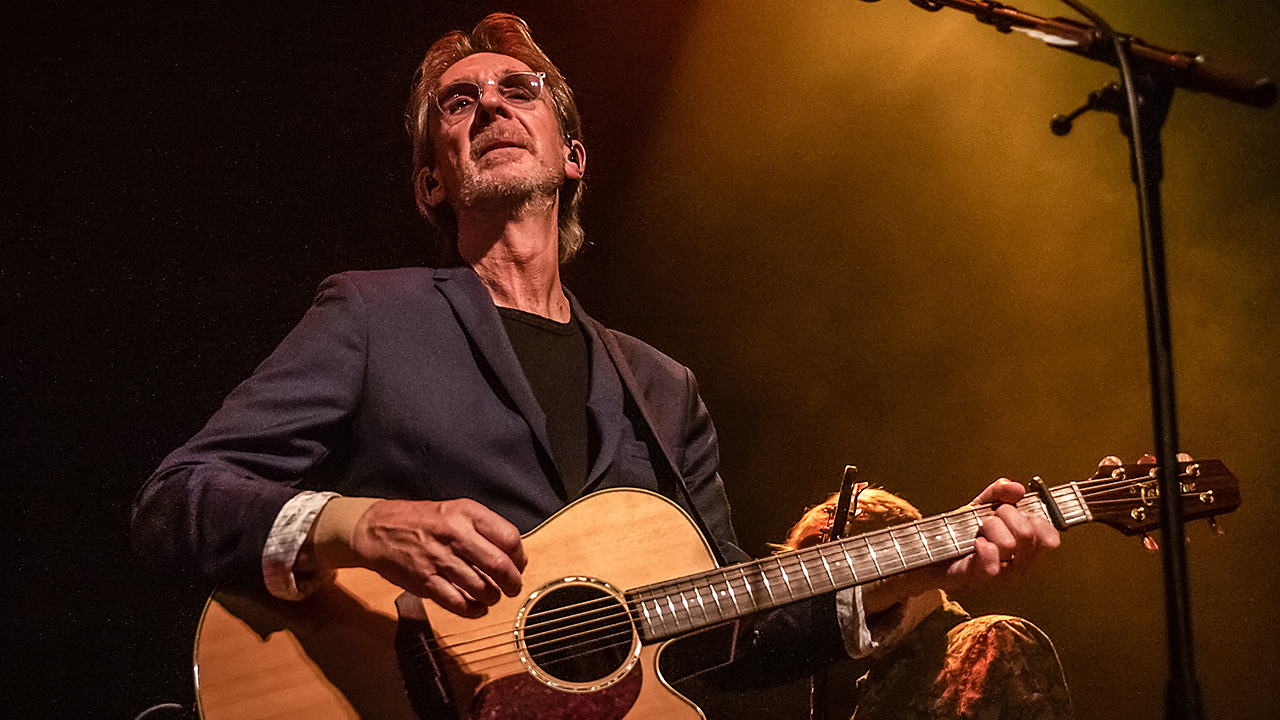"We're one of the only bands where the original members are still alive and speaking with one another": The final Black Sabbath interview
Soon there will be no more comebacks, no more tours, and no more ‘final’ shows: Ozzy, Tony, Geezer and Bill look back at their incredible career

Select the newsletters you’d like to receive. Then, add your email to sign up.
You are now subscribed
Your newsletter sign-up was successful
Want to add more newsletters?

Every Friday
Louder
Louder’s weekly newsletter is jam-packed with the team’s personal highlights from the last seven days, including features, breaking news, reviews and tons of juicy exclusives from the world of alternative music.

Every Friday
Classic Rock
The Classic Rock newsletter is an essential read for the discerning rock fan. Every week we bring you the news, reviews and the very best features and interviews from our extensive archive. Written by rock fans for rock fans.

Every Friday
Metal Hammer
For the last four decades Metal Hammer has been the world’s greatest metal magazine. Created by metalheads for metalheads, ‘Hammer takes you behind the scenes, closer to the action, and nearer to the bands that you love the most.

Every Friday
Prog
The Prog newsletter brings you the very best of Prog Magazine and our website, every Friday. We'll deliver you the very latest news from the Prog universe, informative features and archive material from Prog’s impressive vault.
This is how it all begins. It’s May 1969 and four young men are crammed into a room in the Newtown Community Centre in Aston, Birmingham, inventing the future. Between them they sport an array of haystack hairstyles and unkempt moustaches, although they’re all barely out of their teens. The eldest is a darkhaired figure who plays his guitar lefthanded and emits an air of menace. At 21 he’s their unofficial leader. The rest of them are barely 20.
They’ve been playing together for nearly a year by this point, briefly under the name the Polka Tulk Blues Band, then even more briefly as plain Polka Tulk, and now as Earth. For most of that time they’ve been grabbing gigs wherever they can, mostly playing blues and blues-rock covers. But recently they realised they needed some material of their own.
They’ve written one song already, a jazzy, bluesy track called Wicked World, whose fearful title plugs into the turmoil and angst in the air. They’ve also got the beginnings of a few others, jammed out during a recent residency in a grotty club in Hamburg.
But the song they’re finishing up now is something else. The inspiration came from Gustav Holst’s ominous Mars, The Bringer Of War, from his early 20th-century suite The Planets, but they’ve summoned some dark magic and transformed it into something else entirely.
The guitarist, Tony Iommi, lays down a thick, doom-laden riff before wild-eyed, wild-haired singer Ozzy Osbourne lets out the terrified cry: ‘What is this that stands before me?’ The music suddenly erupts into a terrified gallop, with bassist Geezer Butler lost in his own world as he rocks his head from side to side, and drummer Bill Ward battering his kit like he’s trying to keep a wild animal down.
“When we finished the song, I kind of sunk inside myself,” Ward says today. “I thought we’ve either just made the most enormous mistake of our lives and completely fucked up the future, or we’ve opened a door that leads to something unknown. I didn’t know what we’d done.”
Although the finished song won’t have its title in its lyrics, the one they’ll soon give it, taken from a Boris Karloff B-movie horror movie that came out a few years earlier, fits the music’s malevolent aura perfectly: Black Sabbath.
Sign up below to get the latest from Classic Rock, plus exclusive special offers, direct to your inbox!
Other bands had already heavied up the blues: Cream, Led Zeppelin, America’s Iron Butterfly, but Black Sabbath was something different. This was no blues song. It was its own thing: a thunderclap that would jolt an entirely new form of music to life, launching the band who wrote it on a journey that none of them could ever have conceived of.
“That song was so different to anything else that had gone before,” says bassist Geezer Butler now. “When we wrote Black Sabbath, I knew we had found our calling.”

This is how it all ends. On July 5, 2025, 57 years after the four members of Black Sabbath first played together, the thunderclap will ring for the last time.
That’s the day when Ozzy Osbourne, Tony Iommi, Geezer Butler and Bill Ward will take the stage at Villa Park stadium in Birmingham for a show named Back To The Beginning, a reference to the fact that all four men were born and raised within a stone’s throw of this venerable football ground, home of Aston Villa FC since 1897.
It will effectively be the loudest retirement party in history. In February 2023, Ozzy announced that he would no longer be touring, the culmination of years of health issues, physical injuries and debilitating surgeries. He decided in 2024 that he wanted to bow out with one final hometown show, and he wanted the original line-up of Black Sabbath to be part of it. The upcoming show will be the first time all four members have played together in almost 20 years, and it will be the last time ever. For Black Sabbath, and for Ozzy Osbourne, Back To The Beginning is a closing of the circle.
“‘Important’ isn’t the word I would use,” Ozzy tells Classic Rock of the Villa Park show. “This is my farewell show. I am very blessed to say my goodbyes with the help of so many amazing musicians and friends.”
That list of friends is impressive to say the least. Pretty much every significant rock and metal band in operation today is represented on the all-star bill: Metallica, Guns N’ Roses, Slayer, Tool, Faith No More, Red Hot Chilli Peppers, Ghost, Korn, Anthrax… the list goes on. These aren’t just people whose music has been shaped by Sabbath. They’re people whose whole identities have been shaped by them.
The line-up means Back To The Beginning is easily the biggest single gig of the year, probably the decade. But the night itself will belong to the four men who helped start all this all those years ago.
“We’ve always had a bond with each other,” says Iommi. “All the things that have gone down over the years, all the complaining about one thing or another, we’re a family at the end of the day.”
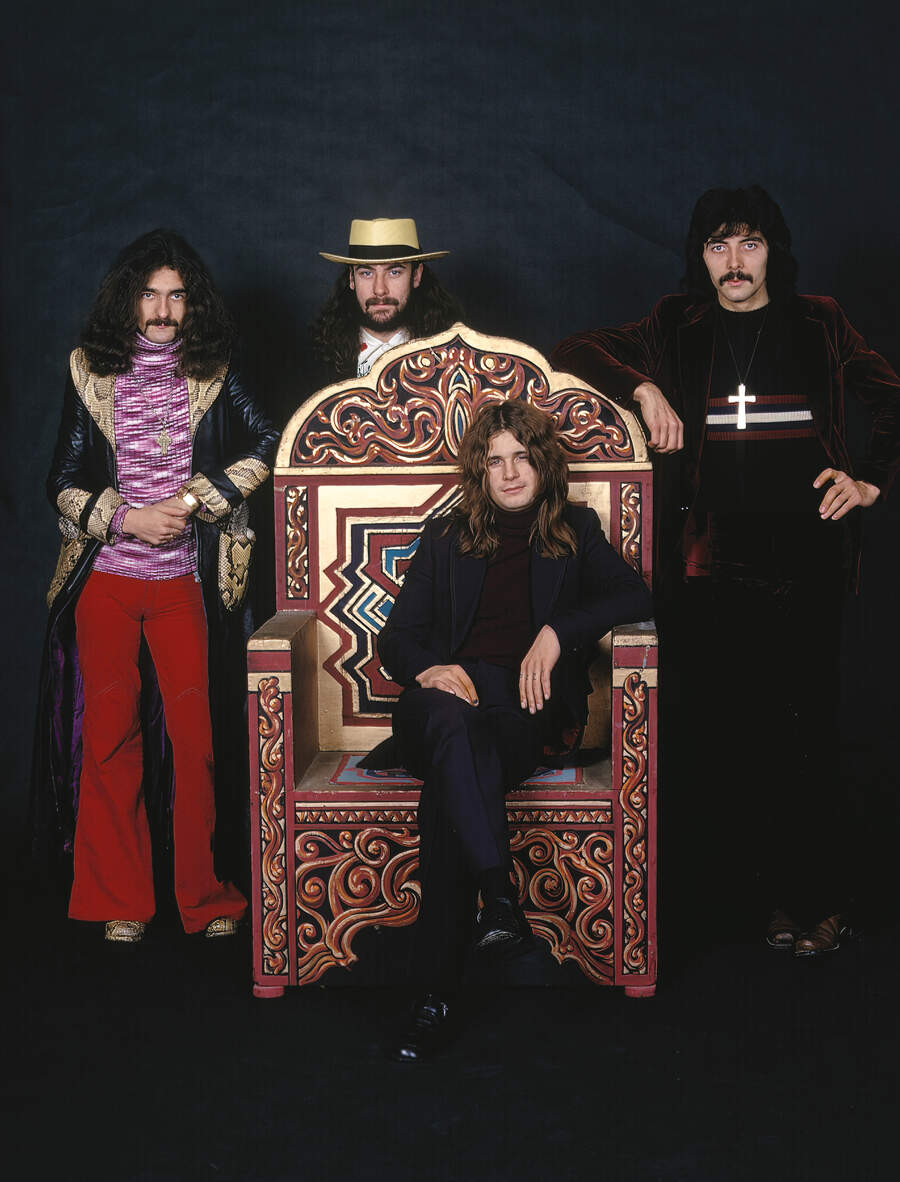
He can say that now, but Iommi initially wasn’t sure if he wanted to play a Black Sabbath show in 2025. “I’d already closed the door on it,” he says of the idea of Sabbath playing live again. “I thought that was it.”
He’s talking about The End, the 11-month-long tour that concluded with a farewell show at Birmingham’s Genting Arena on February 4, 2017. It wasn’t quite the perfect goodbye – Bill Ward wasn’t part of it after pulling out of the most recent Sabbath reunion just over five years earlier – but it was as good a curtain closer on such an illustrious career as it gets. For Iommi, whose decision it was not to tour any more after being diagnosed with lymphoma in early 2012, it was unequivocally the end of the road for Black Sabbath. The End really meant the end this time.
“That was really emotional,” he says now of that final show. “I thought: ‘That’s it now, we’re done, we won’t be playing together again.’”
And so it seemed, until he got a text from Ozzy Osbourne in the autumn of 2024 suggesting the original Sabbath reunite for one more performance during what would be Ozzy’s last ever live show. The guitarist’s reaction: “I didn’t want to do it.”
Geezer Butler has a different view of The End tour today. “For me it was definitely the end of touring,” he says. “But I didn’t rule out a one-off gig, or maybe an album.” He got the same message from Ozzy: did he want to do one more gig? “I said yes if the others were up for it,” he says.
Iommi’s mind was changed by the fact that profits from the show would go to three charities: Cure Parkinson’s, Birmingham Children’s Hospital and Acorns Children’s Hospice. But there was one other condition: Bill Ward would have to be involved.
The members of Black Sabbath haven’t always agreed on everything over the years, but they unequivocally agree on something today. This reunion wouldn’t be happening if Bill Ward wasn’t involved.
Geezer: “The whole point of this last show was to finish with the original four of us playing together, so I wouldn’t have contemplated it without Bill.”
Tony: “No. There’d be no point. We’ve already done that. And that was the thing. Because it’s the original line-up, that makes it more proper. So no, I wouldn’t have done it without the original line-up.”
“It’s very important,” says Ozzy. “The original Sabbath will never be on stage together again. From the late sixties, we’re probably one of the only bands where the original members are still alive and speaking with one another.”
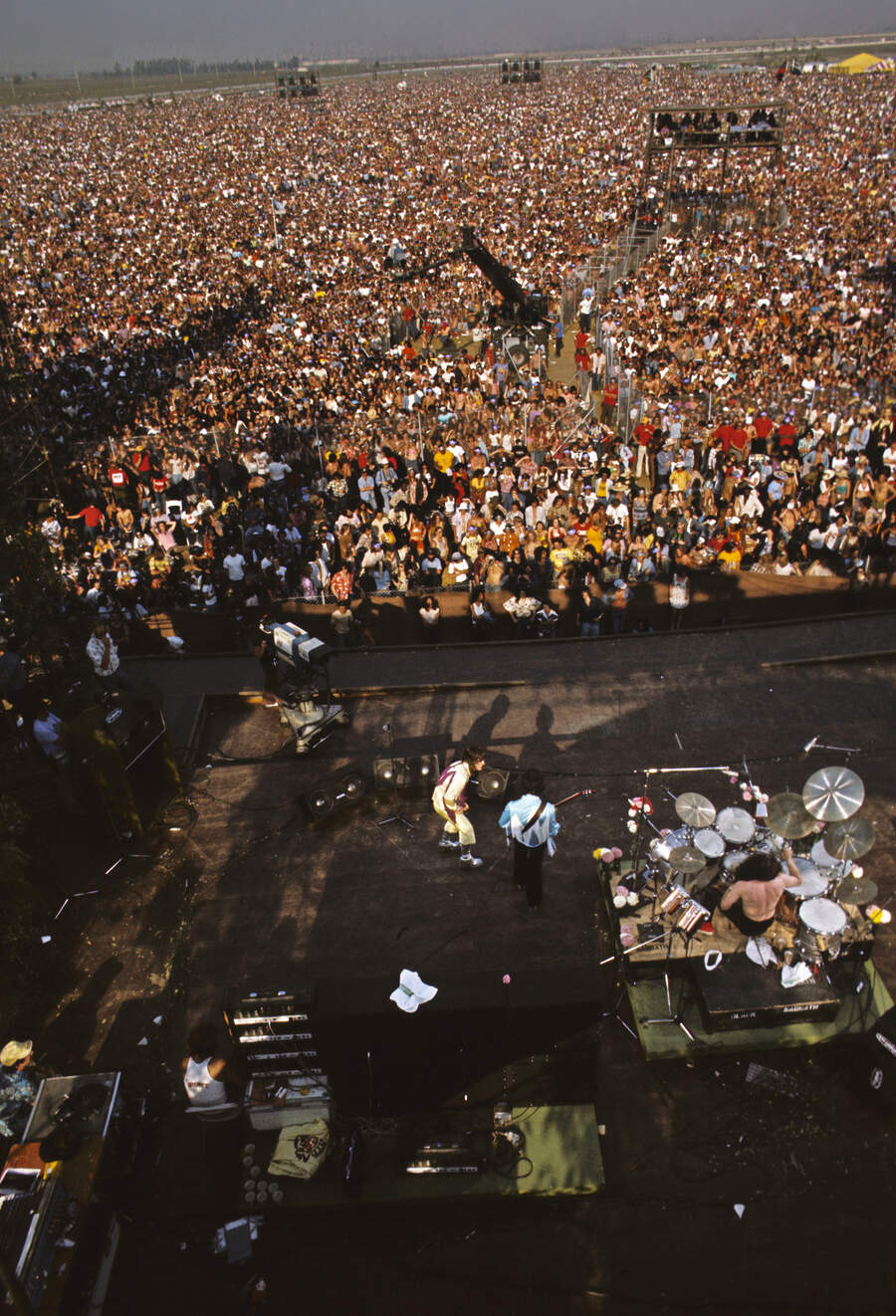
If this has to end anywhere, then Villa Park is the perfect place.
Iommi isn’t about to start pretending he’s a football fan at this late stage, although he’s known plenty of players. “A lot of my friends were ex-footballers and managers for some reason,” he says. “I’d have them round to my house for dinner. People like [80s stars] Andy Gray and Trevor Francis, and it’d be: ‘Don’t talk about football!’”
Ozzy hasn’t shown much interest in the game down the years either, although as kids he and Ward would both ‘mind’ people’s cars for money on match days – basically juvenile extortion. “It was a screw,” the drummer says gleefully. “They’d pay us so we wouldn’t put a knife in the tyres.”
It’s a different matter for Ward and Butler. The latter in particular follows Aston Villa religiously. “It doesn’t get any better,” he says of the choice of venue.
But the link to Aston runs deeper than football. Each of them grew up in this working-class area of Birmingham, all within half a mile of Villa Park. Bill lived on the east side, Ozzy on the west, Geezer and Tony to the south: three points on an imaginary crucifix. They went to school in Aston, they started playing music there, they formed Black Sabbath there. Its factories and steel foundries shaped them, and shaped their music.
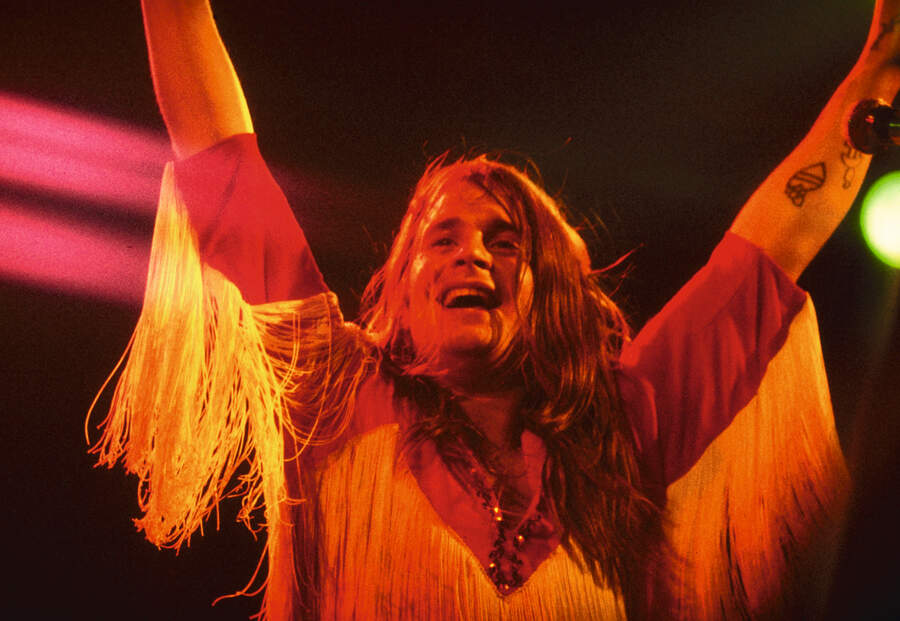
The Sabbath origin story has been told many times. How Tony Iommi and Bill Ward turned up on the doorstep of a guy calling himself Ozzy Zig after their band Mythology fell apart following a hash bust, only to find it was a kid Iommi used to beat up at school. How Bill had persuaded Tony to take a chance on Ozzy, and how Ozzy brought in Geezer Butler, his mate from their old band Rare Breed (there were another couple of people at the start, a slide guitarist and a saxophone player, long forgotten).
Ward can still remember the first time the four men who would form the core of Black Sabbath played together. “We heard Oz warming up in a different room,” he says. “I listened to his voice, this young man, and he sounded so strong and healthy. I thought: ‘Oh my god, we’ve got to hang on to this. This is special.’”
Iommi has a different memory of the noise they made that first time. “It was a horrendous racket,” he says, laughing. “Geezer was a guitar player, he had never played bass before. I didn’t even know Ozzy sang. But it’s amazing how quickly it came together.”
They had the whole world in front of them back then. Their camaraderie was unbreakable.
“There was this unity we had,” says Ward. “We couldn’t stay apart from each other. We used to walk each other home after we played. We’d get to the first house, and sit and talk. Then we’d decide to walk to somebody else’s house and do the same. We’d walk through the night, picking each other’s brains: ‘What do you think?’ Sometimes we wouldn’t get in until four or five in the morning. If one of us was injured or got in a fight, we had each other’s backs.”
“We lived and breathed each other,” says Iommi.
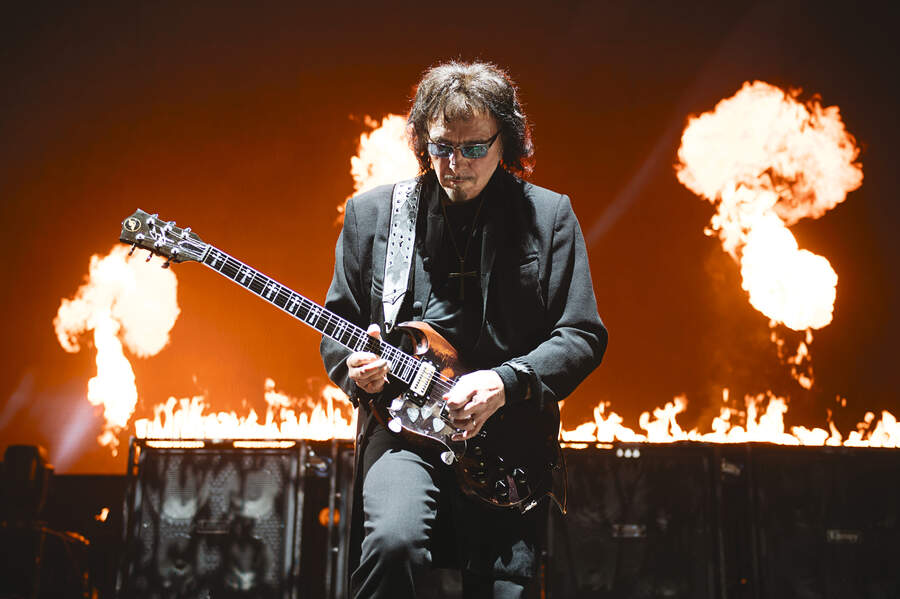
Ozzy first left Black Sabbath in late 1977, walking out of a rehearsal and not coming back.
For much of the preceding decade, Sabbath had been flying high in every sense. They hadn’t so much blazed a trail as steamrolled a new path, the heaviness of their music a benchmark for every other band to aspire to. The records they released from 1970 to 1975 – from the mammoth self-titled debut album to the wild-eyed, cocaine-dusted mania of Sabotage – is one of the greatest six-album runs in rock. Along the way these four kids from Aston got to experience everything fame had to offer, both good (tours, drugs, sex) and bad (litigation, religious protests, death threats). Like Iommi says, they lived and breathed each other.
But by the end of 1977 they were breathing fumes. Ozzy was tired from years of touring and bickering, booze-sodden from years of drinking, and wondering where all the money the band had made actually was. And then he was gone, no longer a member of Black Sabbath.
His self-imposed exile didn’t last long, however. A few months later he was back in. By the start of 1979 he was out again. But this time it wasn’t his choice.
“We didn’t have an option,” says Tony. “The record company were saying: ‘How’s the new album coming on?’ I said: ‘Oh yeah, it’s coming on okay.’ But we hadn’t done anything. We were putting riffs down, but Ozzy just wasn’t in the right frame of mind. He wasn’t into it any more.”
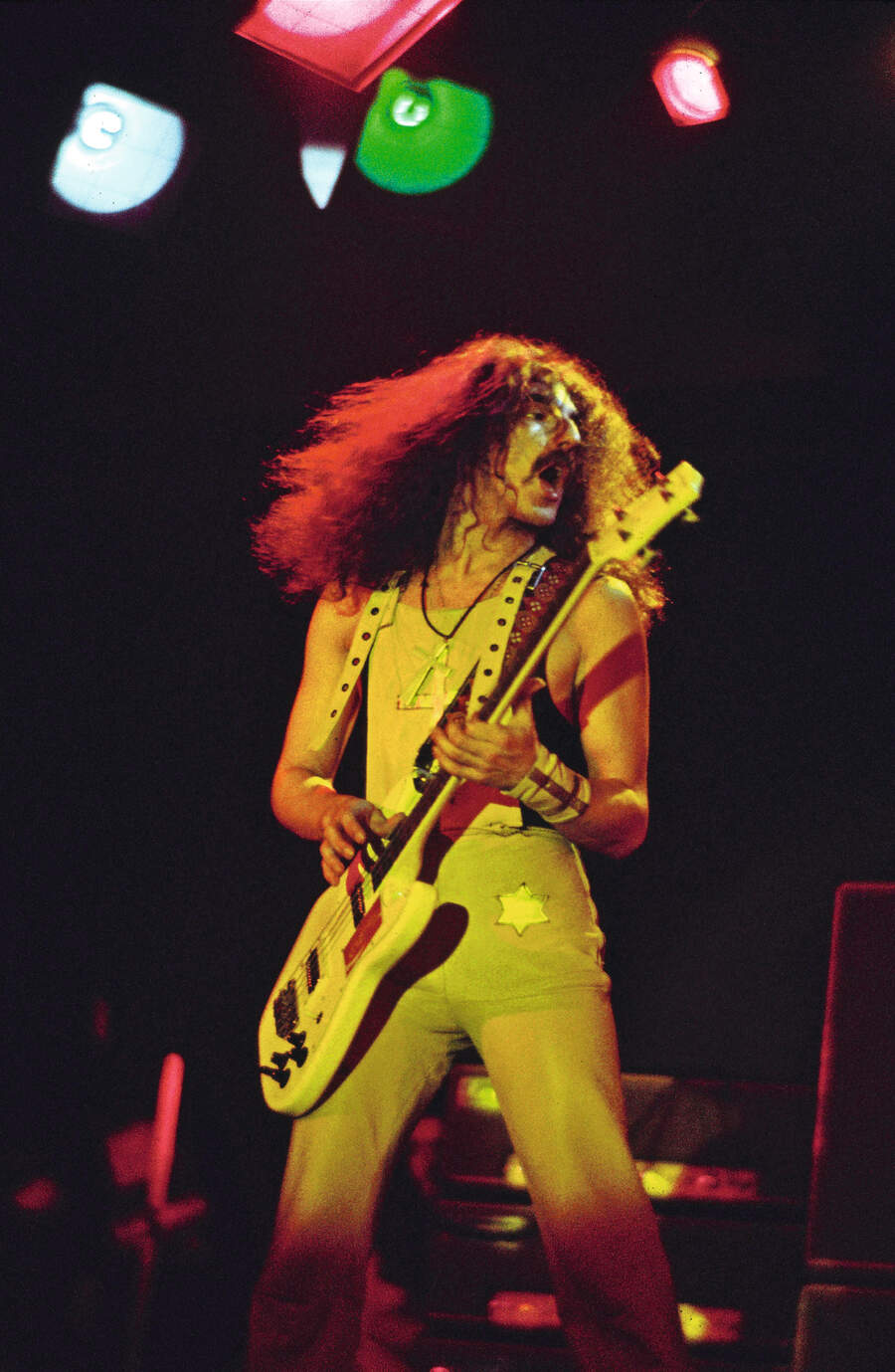
What happened next is a Hollywood movie waiting to happen. Ozzy holed up in an Los Angeles hotel, determined to drink and snort himself to death, before he was pulled from the wreckage of his career by Sharon Arden, daughter of Sabbath’s hardman manager Don Arden and the singer’s future wife. His solo career got off to a flying start with 1980’s Blizzard Of Ozz album and he never looked back.
Sabbath pulled off a minor miracle themselves, bringing in former Rainbow singer Ronnie James Dio and making 1980’s career-reviving album Heaven And Hell. But Ward wasn’t enjoying life in Black Sabbath now that the original fellowship was broken.
“I missed Oz,” he says sadly. “I felt a huge loss. And there were other problems at the same time. I lost my mother, which was huge for me, and my drinking was accelerating, which was becoming a problem.”
Ward quit the band before the Heaven And Hell tour started.
“I don’t know what Black Sabbath should have done, but I do know that it didn’t work for me.”
Iommi carried on with Sabbath through the 80s, initially with Geezer by his side and then as the last remaining original member. The Ozzy and Sabbath camps tossed barbs at each other in the press in the way that warring family members hurl insults around at a drunken wedding reception – they were designed to hurt rather than maim.
“We were mainly focusing on what we were doing,” says Iommi, “but of course, I was aware of Ozzy’s career, because he was part of my life. I liked some of the things he was doing. It was great for him that he found people he could do something with. It made him get off his arse. Us too, because we didn’t want to lose the original line-up, but we’d had no choice.”
Whatever the state of the relationships between the four original members were at any given time during 1980s, there was no changing the fact that the original line-up of Black Sabbath wasn’t coming back. That is, until they did.
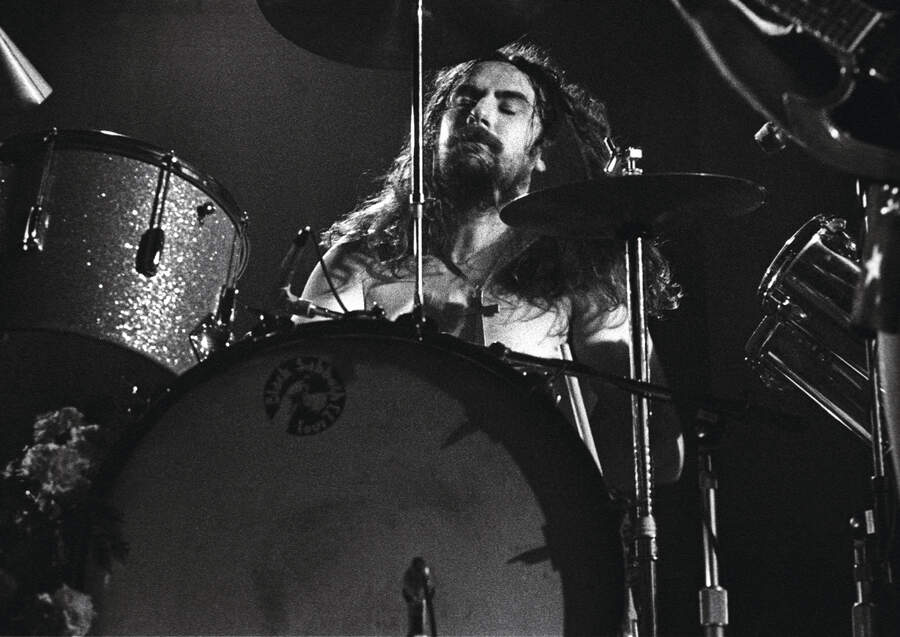
Six years after they fired Ozzy, Black Sabbath’s original line-up reunited on stage for the first time. This was July 13, 1985, at the John F. Kennedy Stadium in Philadelphia. The occasion was the US leg of Live Aid.
“Oof, bloody hell,” Iommi says, wincing at the memory.
‘Oof, bloody hell’ sums it up pretty well. Live Aid is famous for many things – Queen’s for-the-ages performance, Bono falling off stage mid-set, Bob Geldof saying ‘fuck’ on British TV at 3pm on a Saturday afternoon. One thing it definitely isn’t famous for is the Black Sabbath reunion.
By this point the guitarist was the last man standing from the original line-up. When the offer came in to get back together with Ozzy, Geezer and Bill to play a short set as part of this huge charity extravaganza, he thought: ‘Why not?’ Phone calls were made, plans arranged.
“We hadn’t played together for a while,” Iommi says. “We had a slot booked to rehearse on one of the days before the shows, but all we did was drink and talk about the old days.”
The night before the show, they hit the bar once more.
“Of course, on the day of the show I had a dreadful hangover,” he recalls. “That’s why I had my dark glasses on. It didn’t help that we were receiving these lawsuits before the show, cos there were problems between Sharon and [her dad and also Black Sabbath’s manager] Don Arden. It was all a bit chaotic.”
They managed three songs that day: Children Of The Grave, Iron Man and Paranoid. It was a long way from being a great performance (although at least it wasn’t as bad as that of another band that had reunited for the event: Led Zeppelin).
After it was done, they shook hands and stumbled off in their respective directions. Just like that, the first Black Sabbath reunion had come and gone.
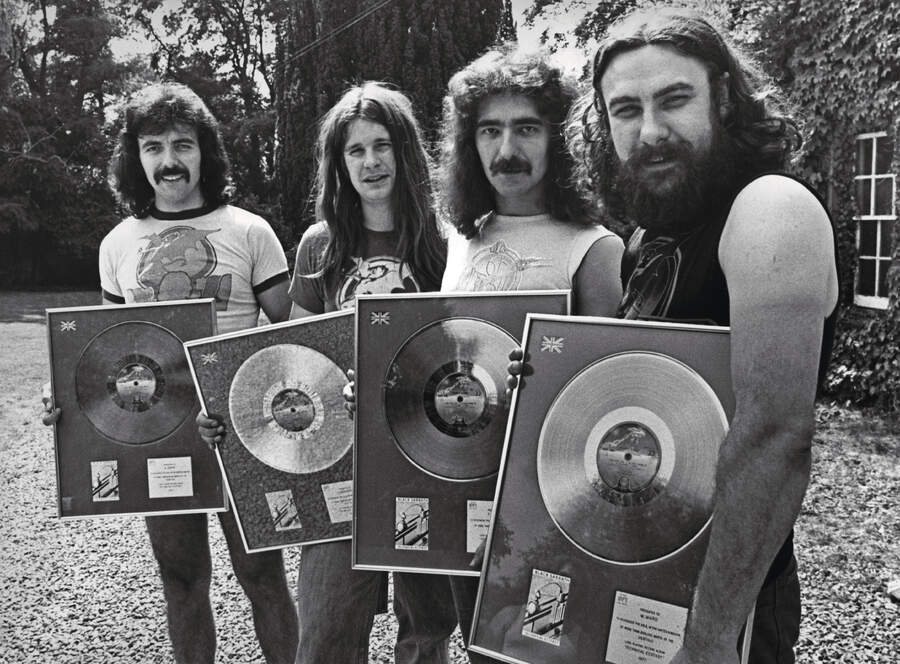
The next time it happened was a lot less ‘Oof, bloody hell’. This time it was November 15, 1992 in Costa Mesa, California, on the final night of Ozzy’s supposed retirement tour. Iommi, Butler and Ward joined their former bandmate on stage at the end of the set for a joyously received four-song encore, playing Black Sabbath, Fairies Wear Boots and the ubiquitous Iron Man and Paranoid.
There was a partial reunion in 1997, when three-quarters of the classic line-up got together to play that year’s Ozzfest in the US – Ward was the absentee, his place taken by Faith No More’s Mike Bordin. But the real thing came in December that year, when the original foursome reunited for two shows at Birmingham’s NEC Arena. This was heavy metal’s founding fathers bringing it back to where it had started.
“It was great to play in our home town with our original line-up,” says Iommi. “It was good.”
“We played particularly well at those shows,” says Butler. “I was very proud of everyone.”
“I enjoyed it,” says Ward. “I enjoyed being with the band.”
You’ve got to laugh. “It was good” and “We played well” massively undersell the brilliance of those shows. Not just musically, but emotionally too. Sabbath were majestic, the years falling away as they played, the 20-something kids they had once been visible where the 50-something men they had become now stood. Saying there were grown men crying in the audience is usually a huge cliché, but in this case it was true both nights.
This Sabbath reunion came to an end in December 1999, at the end of a tour billed The Last Supper because it was supposedly the band’s final run out. Of course, it was no such thing. They were back again in 2001, attempting (unsuccessfully) to record a new album with producer Rick Rubin, then out on the road again in 2004 and 2005.
There was no grand farewell announcement this time, although a legal wrangle between the Osbourne and Iommi camps over the latter’s decision to reunite with Ronnie James Dio under the Black Sabbath name suggested some of the old aggro had risen to the surface (the Iommi/Butler/Dio iteration of the band rechristened themselves Heaven & Hell).
All of that indicated there wasn’t much chance of a reunion happening again, which inevitably meant it happened again. On November 11, 2011, the four original members of Black Sabbath gathered on stage at the Whisky A Go Go club in Los Angeles to announce that they were not only getting back together to tour once more in 2012, but they would also record their first album together since Never Say Die!.
And that’s where things got messy.
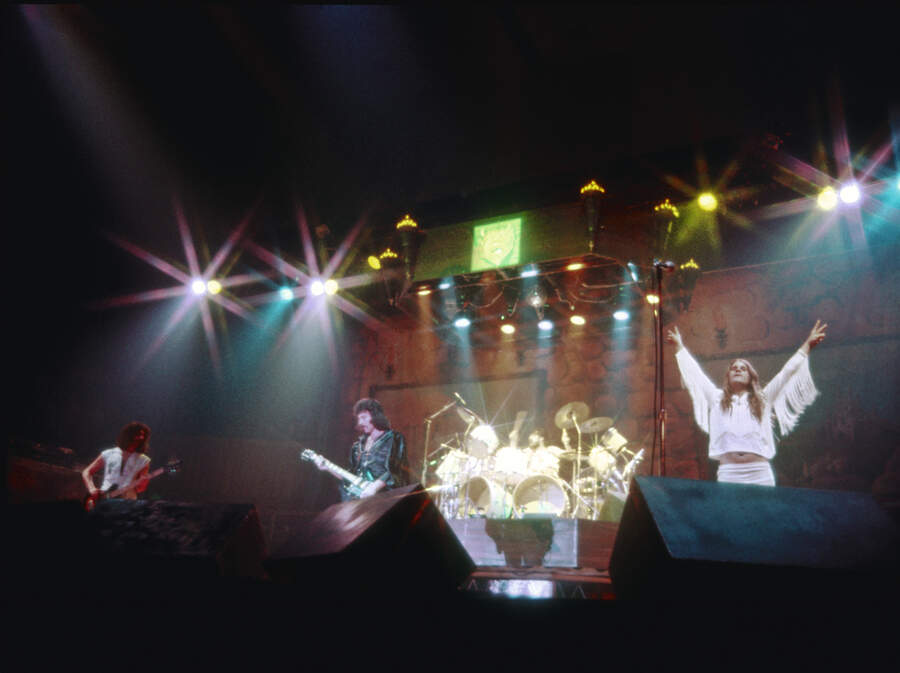
On May 19, 2012, Black Sabbath played their latest comeback gig, in – where else - Birmingham. Three thousand people packed into the O2 Academy for this warm-up club show ahead of their headlining appearance at Download a month later.
But one person was missing. In February, three months after the announcement that all four original members were getting back together, Ward pulled out of this reunion.
Both sides have their own versions of what went wrong: an “unsignable contract” (Ward); a physical inability to cope with the demands of a long tour (the rest). The net result was that it was Tommy Clufetos, the drummer from Ozzy’s solo band, sitting behind the kit that night, and at every subsequent Sabbath gig for the next five years, right up to the last show of the The End tour. When Sabbath recorded their 2013 reunion album 13 it was Rage Against The Machine’s Brad Wilk doing the honours.
No one is willing to reopen old wounds today, but it’s evident that Ward was hurt by the split and the fallout that followed.
“It was a difficult period for me,” he says. “There was a lot of mud-slinging. I went inwards, which wasn’t wise. I became ill.”
He eventually lifted himself out of his despondency via ‘drum art’, images created via rhythms he’d beat out. But he’d reconnected with Ozzy even before that. Despite what was said in the press, the issue was never between the two of them. Ozzy’s wife Sharon, maybe, but not Ozzy himself.
“Me and Oz never fell out,” he says. “Slowly but surely it all came around.”
Tony says he and Ozzy talk more than they ever did, and he’s in touch with Bill and Geezer from time to time. There was a moment a couple of years ago when an upset Ozzy roasted Geezer in an interview for not calling him after the singer made various health issues public, but that turned out to be a misunderstanding (Geezer doesn’t use the phone, and said he’d sent several ‘get well’ messages that never reached Ozzy). And Bill, the man who has spent long periods in self-imposed exile from Sabbath, seems genuinely happy that everyone is friends again.
“It’s an invisible bond,” says Ozzy. “It can’t be broken.”
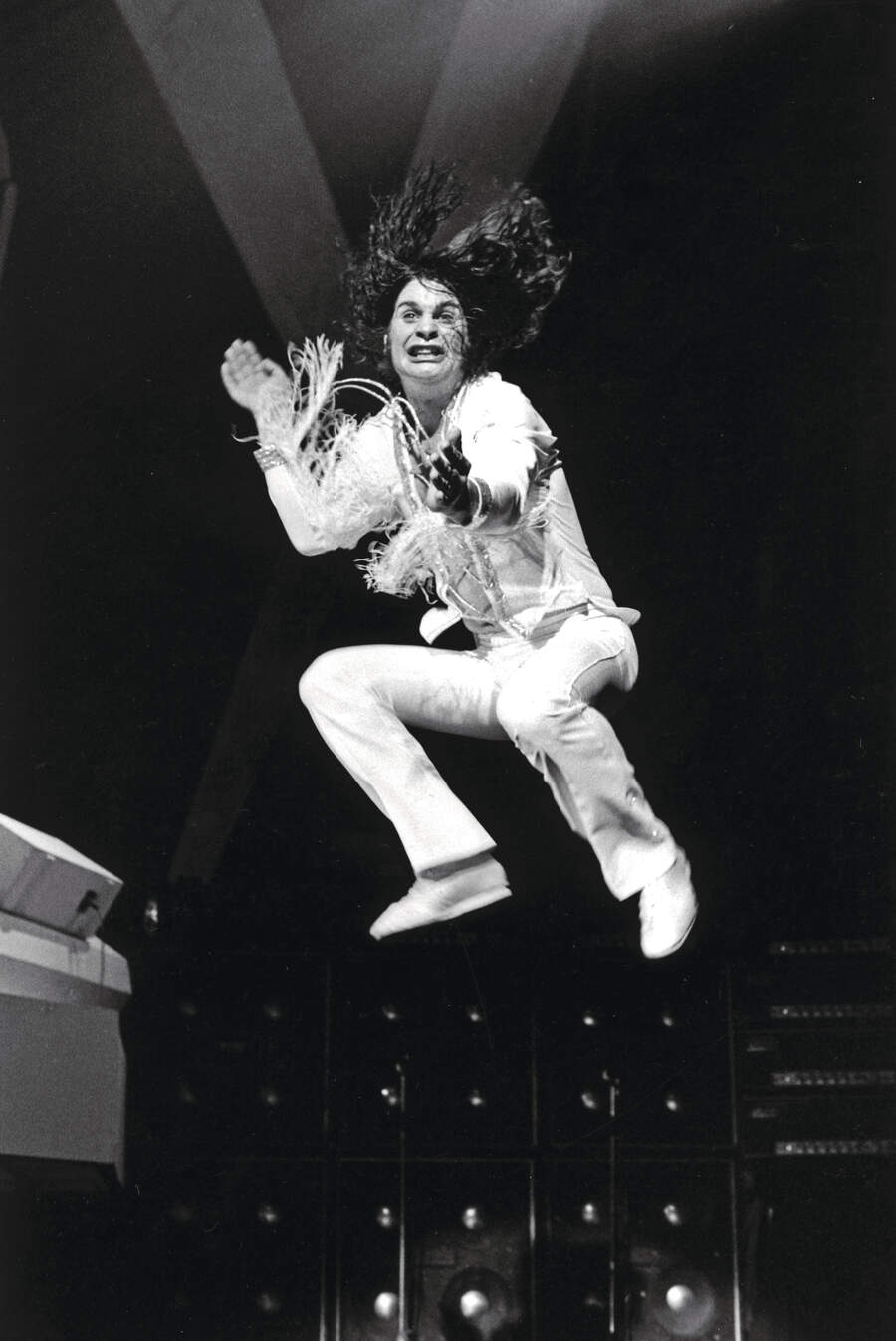
If you’re here for the lowdown on what to expect from the Back To The Beginning gig, sorry to disappoint you. This is mainly because none of the men whose names are at the top of the bill know what they’ll be doing. They’re not being evasive. It’s just that when we speak, in mid-to-late March, it sounds like they genuinely have no idea what will happen.
Here’s what we do know:
1. Ozzy will play a short solo set, presumably at the end of the night.
2. He’ll then join the rest of Sabbath for their last hurrah together, which will also be a fairly short set.
3. That’s pretty much it.
Wheels are definitely in motion, though. Tony sent Ozzy a list of songs he’d like to do. “And he sent a list back saying he’d like to do these songs,” says the guitarist. “Then I sent a list to Bill and Geez to see what they thought.”
“It’s still early days as yet, but I think we’ll probably do a shortened set since Ozzy is doing a solo set too,” is Geezer’s take on it. “I think we’ll be sticking to the old faves like War Pigs, Iron Man, Paranoid etcetera. But we’ll see.”
Over in California, Ward has been in training for the gig. He suffers from neuropathy, which can cause pain in his feet, but that doesn’t stop him. He puts ice packs on his feet. “It knocks all the pain and the burning out,” he says.
He played for two hours yesterday. “Very loud,” he says with some pride. He’s been reacquainting himself with using heavy cymbals, ones that will cut through Tony and Geezer’s guitar and bass, and generally strengthening his wrists. He’s getting his fitness up. “Sparring, boxing, it keeps my upper body fit,” he says. “I’m serious about this.”
For Ozzy, the health issues and surgeries that have prompted his retirement from performing are no small thing to overcome. In his email to Classic Rock in late March, he sounds bullish about the preparation required for the Back To The Beginning show.
“What preparation?” he says. “It’s what I do.”
A few weeks later, speaking on his Sirius X radio show, he gives more of a glimpse into the reality of having to build up his fitness, effectively from scratch.
“I’m doing two sets of three-minute walks a day and weight training,” he says. “Three minutes to you, for instance, is nothing, but I’ve been laying on my back recovering from umpteen surgeries.”
But where there’s a will, there’s a way. Iommi got a text from Ozzy a few days before we speak, outlining his plans to fly to the UK in late May. “We’re going to rehearse at some point in the middle of June,” says the guitarist. “And then we can answer the questions of what we’ll play and what we’re capable of doing.”
One thing Iommi says he won’t be doing is playing with any other bands on the bill. The job of pulling together this all-star line-up has been taken up willingly by Rage Against The Machine guitarist Tom Morello, who has embraced the task with the enthusiasm of a toddler who’s just discovered the keys to the Haribo factory.
“It’s incredible, what he’s done,” Iommi says of Morello. “I’d die of shock trying to put that together. But I can’t see any of us getting up and jamming with anybody else, because everybody else will already be jamming with everybody else. My aim is to focus on Sabbath, and that’s it really. We haven’t played with Bill for years and it’s the original line-up, so I’m sure it’s going to be very emotional.”
And what does Bill Ward himself think about it all?
“My job is to play my ass off,” he says. “That’s what I do. No slight on other people, but I’m the drummer with Black Sabbath. Always have been, always will be.”
Last year, Tony Iommi went back and listened to the music he’d written with his engineer and producer Mike Exeter for 13, Sabbath’s much-trumpeted 2013 reunion album. This was before producer Rick Rubin got his hands on it.
“All the band had come over to my house and we put stuff down,” he says. “I was listening to it and thinking, ‘Blimey, that sounds good.’”
13 was the original line-up’s first album since Never Say Die!, 35 years earlier. The expectation that these 60-somethings could pick up where their late-20 and early-30-something selves left off was optimistic, but 13 was no disgrace. Still, for Iommi the album is tainted by the experience of making it with Rubin.
“I went to Los Angeles with three CDs full of ideas, but he made us strip everything down that I’d put together,” he recalls. “He wanted it to sound like the first album. But you can’t recreate that. Some of the stuff sounded better when we were working at my house – it sounded more… alive. But it’s what it was. And it’s a shame Bill didn’t play on it, but it was difficult."
Butler has similarly mixed feelings.
“There are some good songs on there, such as God Is Dead?, Zeitgeist, Damaged Soul and Dear Father,” he says. “I was led to believe Ozzy would write all the lyrics, but Rick Rubin insisted I write them. So I changed around some lyrics and ideas of Ozzy’s, then wrote everything in a mad rush. I like Sabbath’s lyrics to mean something, but trying to think of thirteen subjects to write about the night before committing them to recording gave me headaches.”
He says he’d change some of those lyrics if he could redo it again. And he echoes Iommi’s words: “It would have been great if Bill was on it.”
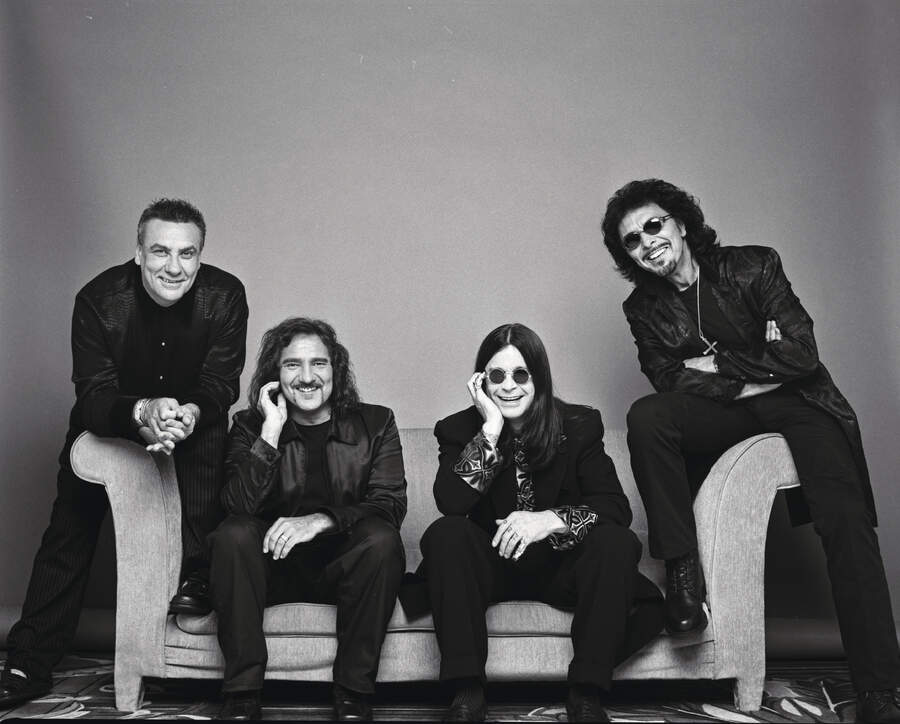
Iommi says there could be a time when pre-Rubin songs he wrote for 13 are released – “There may well be” – but barring a major change of heart or a minor miracle, 13 looks likely to remain Black Sabbath’s recorded swansong.
“I’ve been approached about doing a Sabbath album,” says Iommi. “It could be good, but I don’t want to take the time of sitting down and writing stuff like last time and it goes willy-nilly.”
Geezer is slightly less equivocal.
“Do I wish we’d done another album? No, I don’t wish we had, but if anyone really wanted to do another, I’d be up for it. But not just for the sake of doing it.”
And Bill Ward, who didn’t get the chance to play on what is likely the last Black Sabbath studio album?
“I’d love to do another album,” he says. “I’ll be direct about that.”
Even if there are no more Black Sabbath albums, that doesn’t mean there won’t be more music from the members of Black Sabbath. Butler says he’s “always fiddling about in my home studio, but mainly for my own enjoyment”. Ward and Iommi are both actively writing music with a view to releasing it. Ward is sitting on several solo albums, including his long-gestating Beyond Aston, which currently stands at 26 tracks. “We just need to find someone who will release it properly,” he says.
Iommi hasn’t stopped writing music either. “It’s really coming on now,” he says. “I go in on a Monday or Tuesday with Mike Exeter and we put ideas on the tracks.” He’s cagey about who will sing on it. “I was going to use different singers, then I was going to do instrumental stuff, I’ve got stuff with just one singer. We’ll see.”
The guitarist played on a couple of tracks on Ozzy’s 2022 solo album Patient Number 9. He’s not averse to working with the other guys again separately.
“That’s altogether different to doing a Sabbath album,” he says. “I just don’t want to get into that thing of: ‘Oh, it’s a Sabbath album. Are they going to tour?’ Are they going to do this or that.”
Even Ozzy, the man who sparked the idea for this million-dollar retirement party, isn’t stepping back from the studio completely.
“As far as recording goes, I still enjoy doing my own work,” he says. “I also enjoy singing on other people’s work. For the foreseeable future I will keep on recording, if the projects interest me."

On July 5, Black Sabbath will end their career less than a mile from where it began. This isn’t the latest false ending. There will be no more comebacks, no more tours. We’re not going to see another farewell show in five years’ time.
“No, we’re not,” says Tony. “Like I say, I didn’t originally want to do this one, because I’d already closed the door on it, and I thought that was it.”
“I’ll never say never, because I’ve said never too many times before, and look what happened,” says Geezer. “But I seriously think this is the actual end, unless someone digs us up or finds our DNA in the future and recreates us.”
Back To The Beginning will be a bittersweet night, for sure, not least because it feels real this time. But it isn’t about Sabbath’s legacy – that was cemented a long time ago. It’s about beginnings and endings, about friendships and the passage of time, about four working-class kids achieving the unachievable.
“You can never know how your life turns out.” says Iommi. “It’s just believing in what you do and following that path. That’s always what I’ve had, and not give up on it.”
Here, at the end of it all, how do Sabbath want to be remembered?
“For what we brought to the table,” says Tony Iommi. “For bringing this music out and inspiring other bands to build on it.”
Geezer Butler: “As four working-class blokes who defied all the odds, but had an unbreakable belief in ourselves, and bonded with the greatest fans ever.”
“For showing that it’s okay to push things, to be outlandish and extraordinary and rough around the edges,” says Bill Ward. “We were loud and aggressive, and that’s what I love about us.”
Back To The Beginning takes place on July 5 at Villa Park, Birmingham.
Dave Everley has been writing about and occasionally humming along to music since the early 90s. During that time, he has been Deputy Editor on Kerrang! and Classic Rock, Associate Editor on Q magazine and staff writer/tea boy on Raw, not necessarily in that order. He has written for Metal Hammer, Louder, Prog, the Observer, Select, Mojo, the Evening Standard and the totally legendary Ultrakill. He is still waiting for Billy Gibbons to send him a bottle of hot sauce he was promised several years ago.
You must confirm your public display name before commenting
Please logout and then login again, you will then be prompted to enter your display name.


